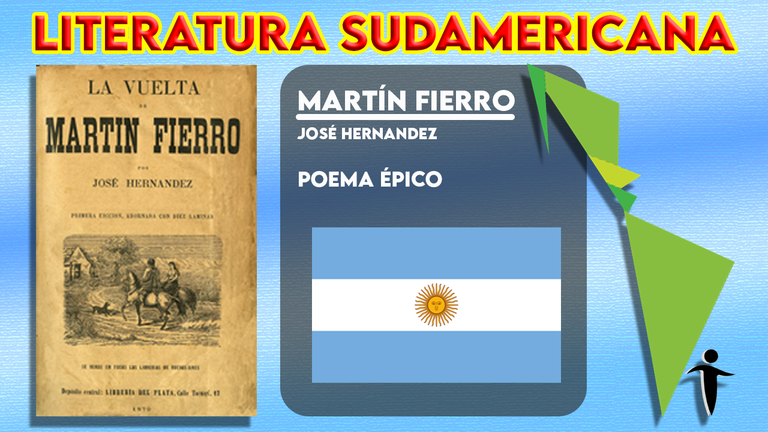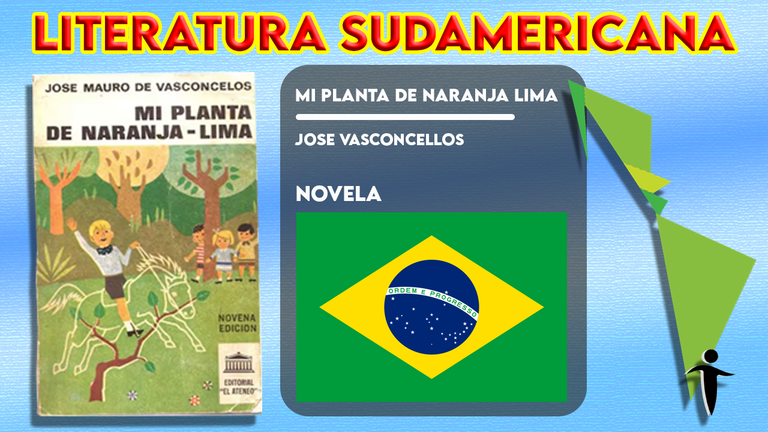
Cuando era chico leía muchísimo. Sigo haciéndolo gracias a Hive que tiene una gran conexión con la lectura. Aún así, hoy estoy muy alejado de tan saludable hábito. Los libros son muy caros y también la vorágine del trabajo y vida digital consumen mucho tiempo. Pero, como argentino tengo un gran contacto con la literatura nacional y latinoamericana. Desde Borges, pasando por Garcia Marquez y hasta Vasconcellos. En mi casa no se compraban muchos libros, pero por alguna razón apareció “Mi planta de naranja-lima” que fue el libro más maravilloso de mi infancia. Si bien es un libro corto, su historia parece extensa y lo leí muchísimas veces como si fuera la primera. Es un libro que se balancea entre la felicidad y la tristeza hasta caer suavemente en la melancolía.
ENGLISH VERSION (click here!)
When I was a kid I read a lot. I still do so thanks to Hive, which has a great connection with reading. Even so, today I am very far from such a healthy habit. Books are very expensive and also the whirlwind of work and digital life consume a lot of time. But, as an Argentine, I have a great contact with national and Latin American literature. From Borges, through Garcia Marquez and even Vasconcellos. In my house, not many books were bought, but for some reason “My Orange-Lime Tree” appeared, which was the most wonderful book of my childhood. Although it is a short book, its story seems extensive and I read it many times as if it were the first time. It is a book that swings between happiness and sadness until it gently falls into melancholy.

En mi adolescencia tuve el goce de conocer a Garcia Marquez, leí “cien años de soledad” incontables veces. En ese libro hay algo mágico. Cada vez que lo leía comprendía algo nuevo. Tiene un poder que va más allá del lenguaje y las palabras. En principio parece abrumador, como si tuviera la intención de confundir; y claro que la tiene. Es un libro que busca desterrar la lógica. En sus páginas impera lo irreal y lo no posible. El pensamiento estructurado no encuentra lugar en su reino. No para mí al menos. Tiene un metamensaje indescriptible, como todo lo que está en el reino de lo etéreo. Tengo una profunda reverencia por ese libro. Me siento absolutamente ignorante para hacer una crítica formada sobre la literatura latinoamericana. Sólo conozco la superficie. Leí a los grandes argentinos pero con el tiempo parece que no lo hubiera hecho. Mientras escribo ésto me surge la necesidad de retomar el perdido hábito de la lectura. Si bien leo en formato PDF lo encuentro bastante incómodo. Antes que un PDF me inclino por un audio libro.
ENGLISH VERSION (click here!)
In my adolescence I had the pleasure of meeting Garcia Marquez, I read “One Hundred Years of Solitude” countless times. There is something magical in that book. Every time I read it I understood something new. It has a power that goes beyond language and words. At first it seems overwhelming, as if it were intended to confuse; and of course it is. It is a book that seeks to banish logic. The unreal and the impossible reign in its pages. Structured thought finds no place in its realm. Not for me at least. It has an indescribable meta-message, like everything that is in the realm of the ethereal. I have a deep reverence for that book. I feel absolutely ignorant to make an informed critique of Latin American literature. I only know the surface. I read the great Argentines but with time it seems that I have not done so. While I write this, the need arises for me to resume the lost habit of reading. Although I read in PDF format, I find it quite uncomfortable. Rather than a PDF, I lean towards an audio book.

Entre las que considero grandes obras latinoamericanas no puedo ignorar el Martin Fierro de José Hernandez. El único poema épico latinoamericano de la época de las colonias. Cuenta la historia de un gaucho honrado que por el contexto de la época es injustamente acusado y perseguido como un delincuente. Los gauchos eran hombres de campo que tenían sangre originaria y europea. Jinetes y domadores muy codiciados. Fierro injustamente pierde a su familia y a sus hijos, su tierra y su trabajo. Es una historia dura que muestra la resiliencia de los criollos. Una obra muy interesante, da una perspectiva única de la época. La guerra con los pueblos originarios y la formación del naciente estado argentino. Es el único poema épico latinoamericano en la época de las colonias.
ENGLISH VERSION (click here!)
Among those that I consider great Latin American works, I cannot ignore Martin Fierro by José Hernandez. The only Latin American epic poem from the colonial era. It tells the story of an honest gaucho who, due to the context of the time, is unjustly accused and persecuted as a criminal. Gauchos were country men who had native and European blood. Very coveted horsemen and tamers. Fierro unjustly loses his family and his children, his land and his work. It is a hard story that shows the resilience of the Creoles. A very interesting work, it gives a unique perspective of the time. The war with the native peoples and the formation of the nascent Argentine state. It is the only Latin American epic poem in the colonial era.
Obviamente en mi adultez pasé a algo más duro como Jauretche, pero es demasiado autóctono para mencionarlo. Creo que a fin de cuentas esa es la diferencia con la literatura angloparlante y europea. Son mundos más civilizados, la literatura latinoamericana es mucho más arrabalera y cercana, mística pero real, cruda pero para sensibilizar y generar empatía. Aunque esta es solo mi percepción y mi experiencia personal. Todos los libros que leí fueron armando mi personalidad y los recuerdo a todos con mucho cariño. Aprovecho para recomendarles que lean algo de Dolina un escritor argentino. Sobre todo “Crónicas del Ángel gris” una pieza fabulosa que regalé a una persona muy querida para mí en el pasado. Este libro es una pieza de fantasía barrial llena de mística. Está tan bien hecha que cada una de sus páginas hace trabajar tu imaginación muy activamente.
ENGLISH VERSION (click here!)
Obviously in my adulthood I moved on to something harder like Jauretche, but it is too indigenous to mention. I think that in the end that is the difference with English-speaking and European literature. They are more civilized worlds, Latin American literature is much more suburban and close, mystical but real, raw but to sensitize and generate empathy. Although this is only my perception and my personal experience. All the books I read shaped my personality and I remember them all fondly. I take this opportunity to recommend that you read something by Dolina, an Argentine writer. Above all, “Chronicles of the Gray Angel,” a fabulous piece that I gave to a very dear person in the past. This book is a piece of neighborhood fantasy full of mysticism. It is so well done that each of its pages makes your imagination work very actively.

Espero que les haya gustado mi presentación sobre la cultura literaria latinoamericana. Es una tierra donde el arte se vive de una manera muy especial. Creo que no tenemos nada que envidiarle al “mundo antiguo”, sino por el contrario, con mucho menos logramos competirles como iguales.
ENGLISH VERSION (click here!)
I hope you liked my presentation on Latin American literary culture. It is a land where art is lived in a very special way. I think we have nothing to envy the “ancient world,” but on the contrary, with much less we manage to compete with them as equals.
Banderas obtenidas de wikipedia
Portadas de los libros tomadas de Google
Todo editado en photoshop por mi
Posted Using InLeo Alpha